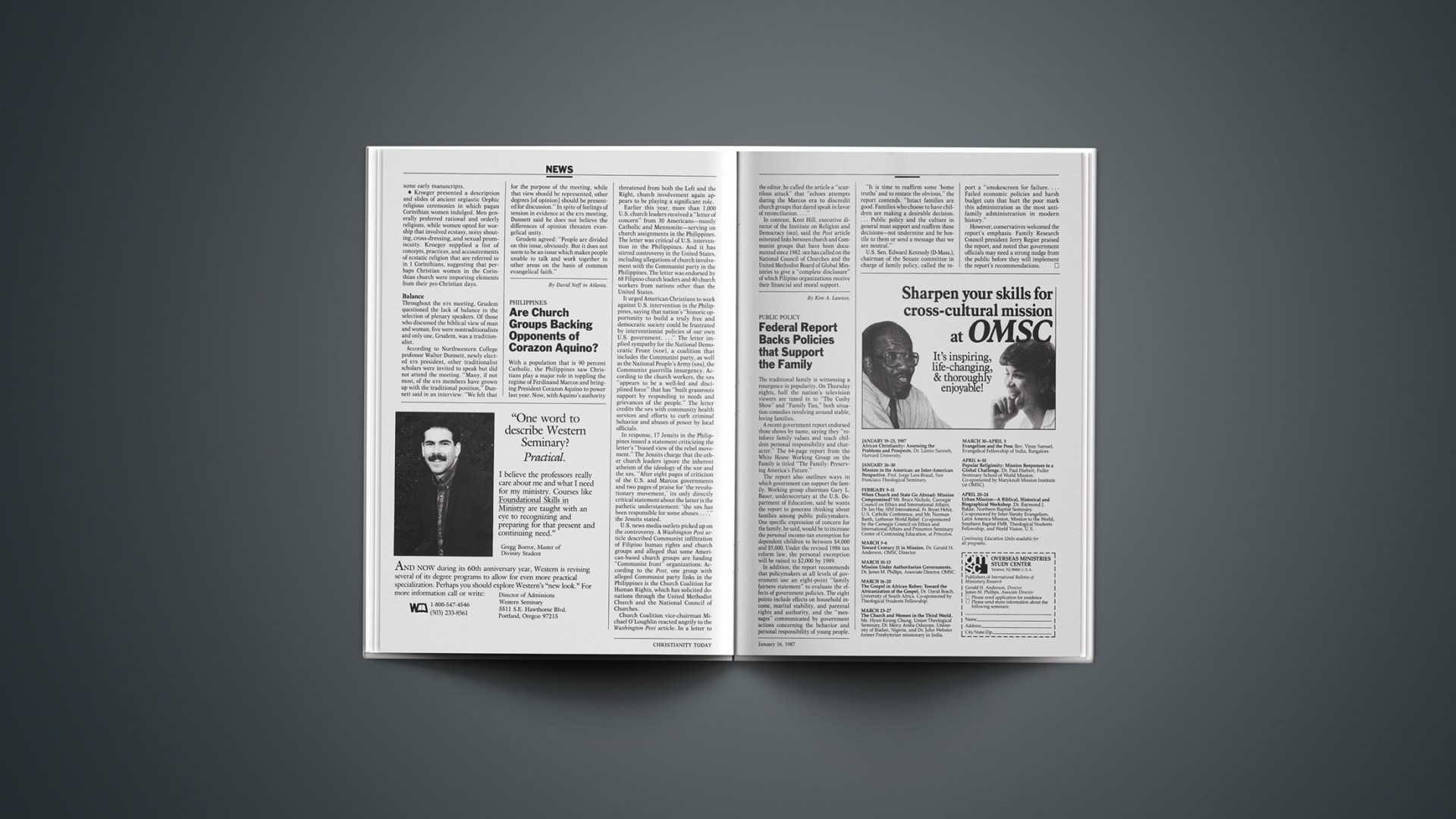With a population that is 90 percent Catholic, the Philippines saw Christians play a major role in toppling the regime of Ferdinand Marcos and bringing President Corazon Aquino to power last year. Now, with Aquino’s authority threatened from both the Left and the Right, church involvement again appears to be playing a significant role.
Earlier this year, more than 1,000 U.S. church leaders received a “letter of concern” from 30 Americans—mostly Catholic and Mennonite—serving on church assignments in the Philippines. The letter was critical of U.S. intervention in the Philippines. And it has stirred controversy in the United States, including allegations of church involvement with the Communist party in the Philippines. The letter was endorsed by 68 Filipino church leaders and 40 church workers from nations other than the United States.
It urged American Christians to work against U.S. intervention in the Philippines, saying that nation’s “historic opportunity to build a truly free and democratic society could be frustrated by interventionist policies of our own U.S. government.…” The letter implied sympathy for the National Democratic Front (NDF), a coalition that includes the Communist party, as well as the National People’s Army (NPA), the Communist guerrilla insurgency. According to the church workers, the NPA “appears to be a well-led and disciplined force” that has “built grassroots support by responding to needs and grievances of the people.” The letter credits the NPA with community health services and efforts to curb criminal behavior and abuses of power by local officials.
In response, 17 Jesuits in the Philippines issued a statement criticizing the letter’s “biased view of the rebel movement.” The Jesuits charge that the other church leaders ignore the inherent atheism of the ideology of the NDF and the NPA. “After eight pages of criticism of the U.S. and Marcos governments and two pages of praise for ‘the revolutionary movement,’ its only directly critical statement about the latter is the pathetic understatement: ‘the NPA has been responsible for some abuses …,’ ” the Jesuits stated.
U.S. news media outlets picked up on the controversy. A Washington Post article described Communist infiltration of Filipino human rights and church groups and alleged that some American-based church groups are funding “Communist front” organizations. According to the Post, one group with alleged Communist party links in the Philippines is the Church Coalition for Human Rights, which has solicited donations through the United Methodist Church and the National Council of Churches.
Church Coalition vice-chairman Michael O’Loughlin reacted angrily to the Washington Post article. In a letter to the editor, he called the article a “scurrilous attack” that “echoes attempts during the Marcos era to discredit church groups that dared speak in favor of reconciliation.…”
In contrast, Kent Hill, executive director of the Institute on Religion and Democracy (IRD), said the Post article reiterated links between church and Communist groups that have been documented since 1982. IRD has called on the National Council of Churches and the United Methodist Board of Global Ministries to give a “complete disclosure” of which Filipino organizations receive their financial and moral support.
By Kim A. Lawton.










